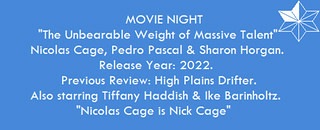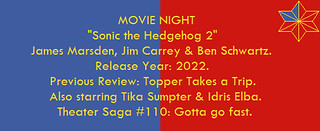Cast:
James Cagney (Johnny Cave), Mae Clarke (Janet Henry), James Burke (Patrick James Aloysius Haley), Edward Brophy (Pete Reilly), Henry Kolker (Abel Canning), Bernadene Hayes (Hazel Scott), Edward McNamara (Captain Pat Hanlon), Robert Gleckler (Marty Cavanaugh), Joe Sawyer (Joe Burton), and Edward Gargan (Al) Directed by John G. Blystone (#926 - Our Hospitality)
Review:
I don't think you need to say many words about a semi-obscure 1930s movie, but why the hell not? Even an average movie from the era could be interesting, provided it does not bore the senses, if only because sometimes you can find something quizzical when doing a quick look for an "old-fashioned" movie. Besides, there is more to films of the 1930s than just looking at the year of 1939 and all of those classic times. At any rate, James Cagney started his film career during this particular decade. He had a decade of vaudeville and stage work behind him before Warner Bros. signed him to a contract (one that went from short-term to long-term extension), and The Public Enemy (1931) cemented him as a star. The film was based on the stories of James Edward Grant, who had written several stories involving the character played by Cagney that appeared in The Saturday Evening Post in 1933 and 1934. Henry McCarty and Henry Johnson wrote the screenplay while Henry Ruskin contributed additional dialogue (Horace McCoy apparently had been listed in earlier reports as a contributor but was dropped). The film was released by Grand National Films, who managed to snag James Cagney because he had sued Warner Bros. for breach of contract, owing to conflicts about top billing and monetary disputes. Grand National was a newly formed independent studio led by Edward L. Alperson. Cagney starred in two films for the studio: this film and Something to Sing About (1937), but neither were particularly successful for the studio, which would liquidate in 1939 after releasing a hundred films in its time, with many of the films being available in the public domain. Cagney returned to Warner Bros. after getting a substantially better deal. In the end, Cagney acted regularly in films until the 1960s that thrived in a variety of roles that ranged from "tough guy" to comedic. The film was directed by John G. Blystone, who directed dozens of films in both the silent and sound eras (after starting as a shorts director in the 1910s) before his death in 1938 at the age of 45.
So yes, this is a film...drama (calling it a noir is a bit too far) involving a fight against systemic cheating, with a man from the New York Department of Weights and Measures. Technically, there is a bit of light tone present here, since Cagney isn't the violent lead here (instead, he plays someone who just happens to have been a prizefighter before becoming a department man). Instead, it is a light film of 66 minutes that moves on one beat of a likably rigid lead fighting against the dangers of...shopkeepers that give you less product for their weight and gasoline guys that don't give you the proper gallon of gas. To be honest, I actually didn't know the Weights and Measures Department was actually real, because it sounds like the line to a cheeky joke one makes involving making a super-serious movie that is actually time for deadpan, but it actually is a real thing. In that sense, maybe it makes sense that this is a light film, one that can be watched with mild curiosity that doesn't have too many pretensions about being tightly packed suspense. Of course, it isn't anybody's idea of a great Cagney film to start with, but he is still game for what is needed in terms of drawing charisma where it is needed in confidence that carries the film through the potential leaky holes for a reasonable winner. It becomes a winner because of Cagney rather than in spite of him, since he elevates material that is borderline serviceable and makes it work just enough. Of course, the others aren't too bad themselves, with Clarke getting a few little moments with Cagney to make diverting chemistry together in differing approaches to the "racket" of things in life. Burke provides a few little moments with light humor as the momentary partner with Cagney (which mainly involves Irish references). The film does lack a suitable threat, since shifty aldermen (an okay Kolker and an ornery Gleckler) and heavies (Burton) could probably be utilized a bit more usefully. The only substantial fight scene is at the end, if only because having a scene where a cop "looks to smoke all of his cigar before intervening" is different from the usual showdown. As a whole, Great Guy is brisk and mildly involving that may be curious enough to just slip through as a win depending on the viewer and their attention to seeking out the films of James Cagney. To me, it is fine enough to work, for which one can thank Cagney and his confident swagger for making one want to stick through and keep the eyes open for what could happen next.
Overall, I give it 7 out of 10 stars.











